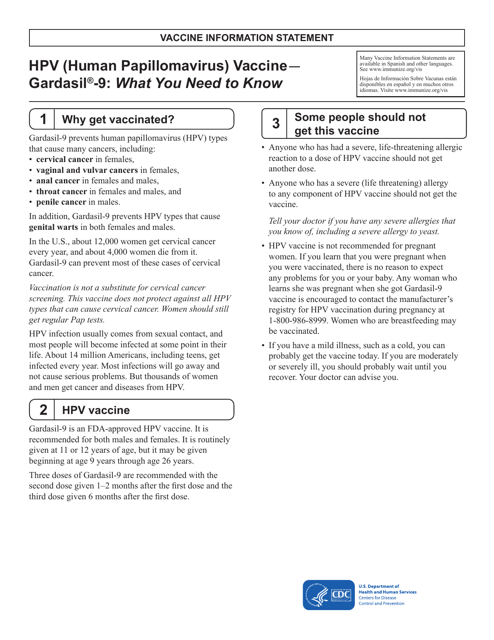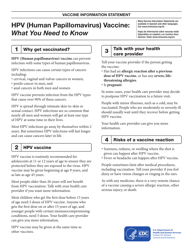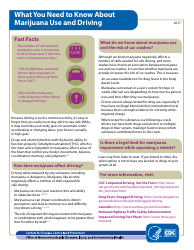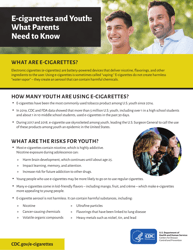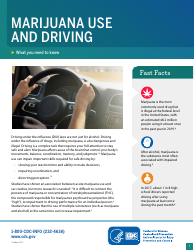Hpv (Human Papillomavirus) Vaccine: What You Need to Know
Hpv (Human Papillomavirus) Vaccine: What You Need to Know is a 2-page legal document that was released by the U.S. Department of Health and Human Services - Centers for Disease Control and Prevention on March 31, 2016 and used nation-wide.
FAQ
Q: What is HPV?
A: HPV stands for Human Papillomavirus, which is a common sexually transmitted infection.
Q: What does the HPV vaccine do?
A: The HPV vaccine helps prevent certain types of HPV infections that can cause various cancers and genital warts.
Q: Who should get the HPV vaccine?
A: The HPV vaccine is recommended for both males and females between the ages of 9 and 45.
Q: When should someone get the HPV vaccine?
A: The HPV vaccine is most effective when given before exposure to HPV, which is why it is recommended for adolescents.
Q: Are there any side effects of the HPV vaccine?
A: Like any vaccine, the HPV vaccine can cause mild side effects such as soreness at the injection site or a low-grade fever.
Q: Is the HPV vaccine safe?
A: Yes, the HPV vaccine is considered safe and has undergone extensive testing and monitoring.
Q: Can the HPV vaccine protect against all types of HPV?
A: The HPV vaccine protects against the most common types of HPV that can cause cancer and genital warts, but it does not protect against all types of HPV.
Q: Is the HPV vaccine required?
A: The HPV vaccine is not currently required by law, but it is recommended by healthcare professionals for the prevention of HPV-related diseases.
Q: Can the HPV vaccine prevent all types of cancer?
A: The HPV vaccine can help prevent certain types of cancer, such as cervical, vaginal, vulvar, and anal cancer, but it does not prevent all types of cancer.
Form Details:
- The latest edition currently provided by the U.S. Department of Health and Human Services - Centers for Disease Control and Prevention;
- Ready to use and print;
- Easy to customize;
- Compatible with most PDF-viewing applications;
- Fill out the form in our online filing application.
Download a printable version of the form by clicking the link below or browse more legal forms and templates provided by the issuing department.
